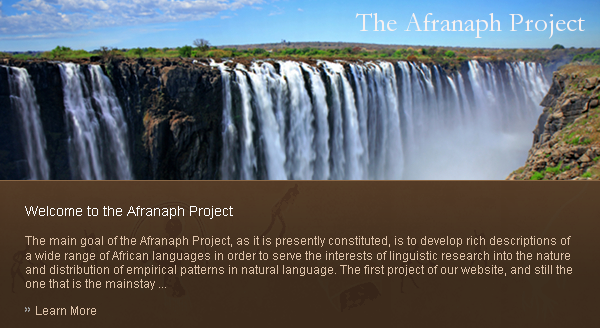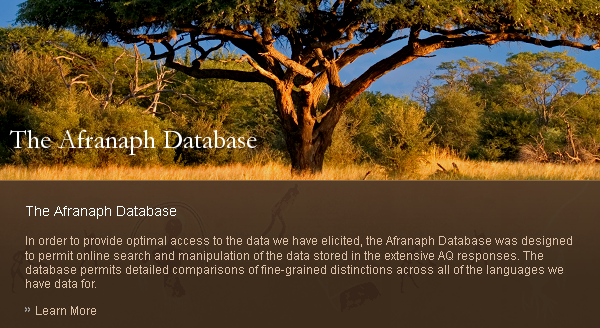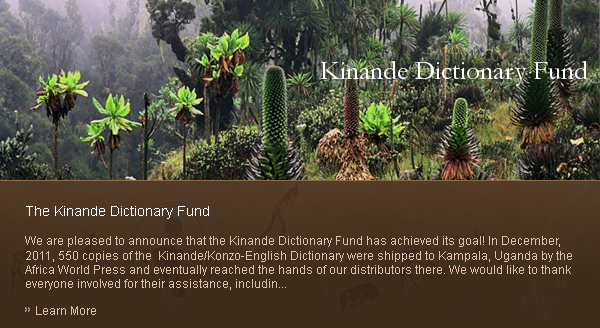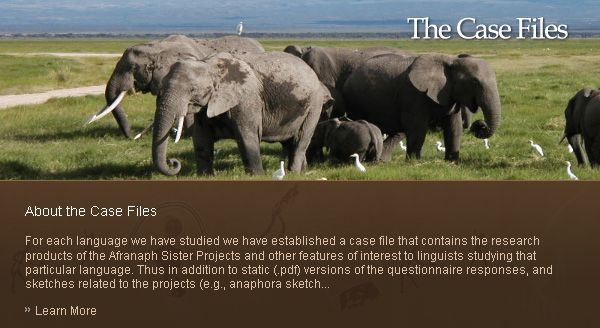Staff
![]()
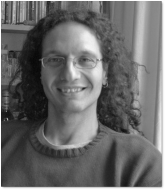 The online database that Afranaph uses is a customized version of a family of databases designed by Alexis Dimitriadis. Alexis worked closely with the Afranaph staff to adapt his design to our needs, bringing both his technological and linguistic skills to bear, a combination that has been indispensable for the success of our project.
The online database that Afranaph uses is a customized version of a family of databases designed by Alexis Dimitriadis. Alexis worked closely with the Afranaph staff to adapt his design to our needs, bringing both his technological and linguistic skills to bear, a combination that has been indispensable for the success of our project.Alexis Dimitriadis obtained his M.A. degree in Mathematics from Portland State University, and the Ph.D. degree in Linguistics from the University of Pennsylvania. He is currently a senior research associate at the Utrecht institute of Linguistics OTS. He has participated in several technology-related projects, including the Berlin-Utrecht Reciprocals Survey, for which the software behind the Afranaph database was developed, and the Typological Database System. His primary research interests include the semantics and typology of reciprocals, anaphoric and pronominal reference, Greek linguistics, and Bantu linguistics.
For more information about Alexis Dimitriadis, please contact him via email.
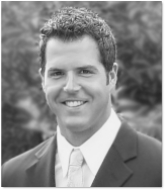 Our new website was designed by John Amodeo, who formerly served Rutgers University as both Associate Director of Information Technology (SAS/NB) from 2001-2006 and Manager of Computer Services from 1998-2001. John currently works as an IT consultant specializing in internet marketing, website design, and social networking services for various commercial, government, and political entities.
Our new website was designed by John Amodeo, who formerly served Rutgers University as both Associate Director of Information Technology (SAS/NB) from 2001-2006 and Manager of Computer Services from 1998-2001. John currently works as an IT consultant specializing in internet marketing, website design, and social networking services for various commercial, government, and political entities.For more information about John Amodeo, please please contact him via This email address is being protected from spambots. You need JavaScript enabled to view it..
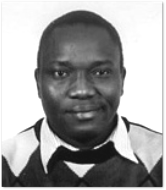 Oluseye Adesola received his Ph.D. from Rutgers University in 2005 and is an assistant professor at the Yale University. He designed the original website for the Afranaph projects and continues to provide oversight, outreach and support for Afranaph, and is also our consultant for Yoruba. His research interests include Yoruba Studies, Comparative Syntax, African Culture and Literature, African Linguistics, Syntactic Theory, Anaphora, Wh-movement Constructions and Focus Constructions.
Oluseye Adesola received his Ph.D. from Rutgers University in 2005 and is an assistant professor at the Yale University. He designed the original website for the Afranaph projects and continues to provide oversight, outreach and support for Afranaph, and is also our consultant for Yoruba. His research interests include Yoruba Studies, Comparative Syntax, African Culture and Literature, African Linguistics, Syntactic Theory, Anaphora, Wh-movement Constructions and Focus Constructions.For more information about Oluseye Adesola, please see his website.
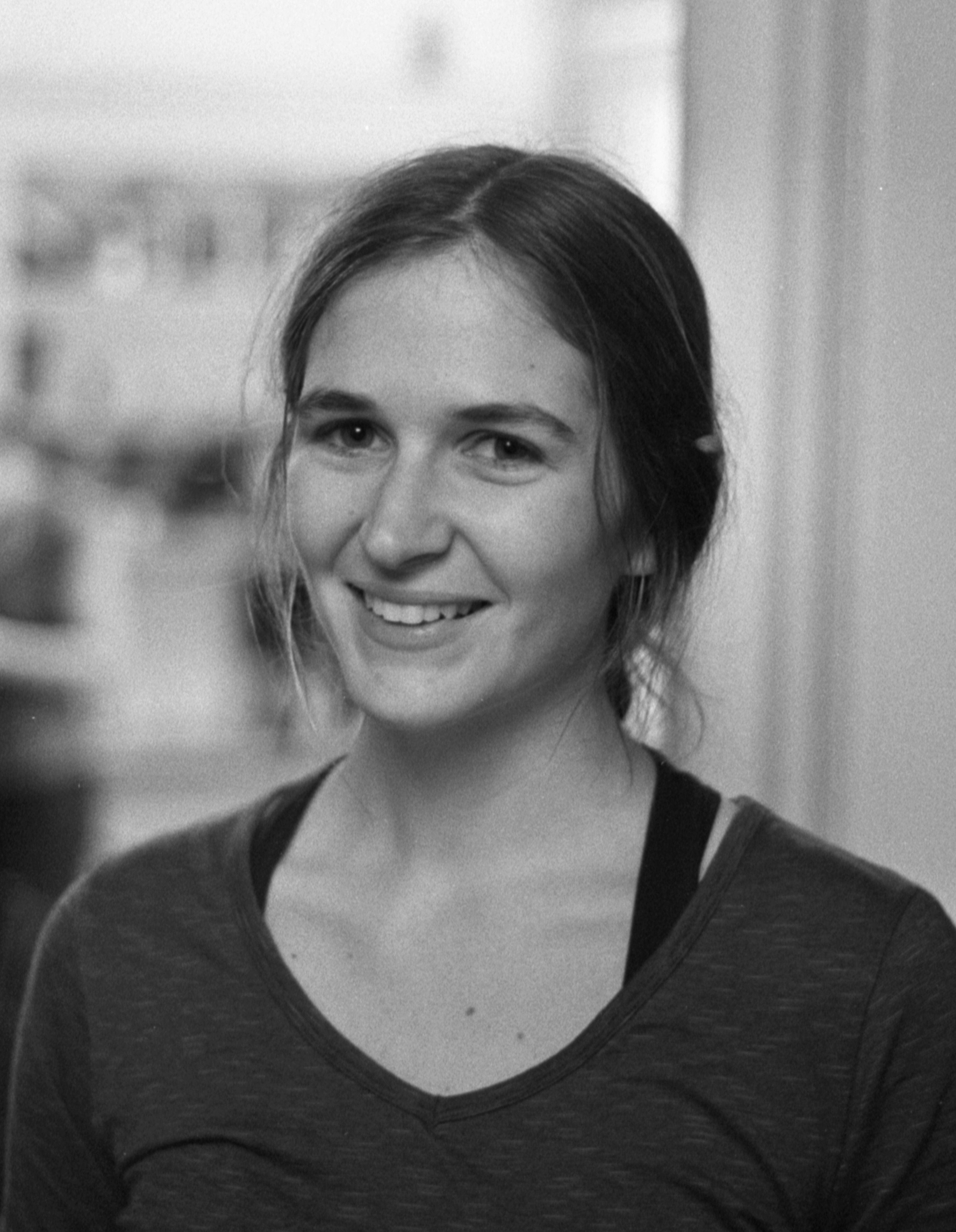 Hannah Sande is an assistant professor of linguistics at Georgetown University. She studies phonology and its interaction with morphosyntax, and she is specifically interested in incorporating data from understudied languages into the phonological and morphological theoretical literature. Hannah also carries out documentary work. Since the fall of 2013 she has been documenting Guébie, an endangered Kru language spoken in southwest Côte d'Ivoire. A frequent visitor to West Africa, Hannah began working as the contact for Afranaph consultants in francophone Africa in early 2015.
Hannah Sande is an assistant professor of linguistics at Georgetown University. She studies phonology and its interaction with morphosyntax, and she is specifically interested in incorporating data from understudied languages into the phonological and morphological theoretical literature. Hannah also carries out documentary work. Since the fall of 2013 she has been documenting Guébie, an endangered Kru language spoken in southwest Côte d'Ivoire. A frequent visitor to West Africa, Hannah began working as the contact for Afranaph consultants in francophone Africa in early 2015.Board of Directors
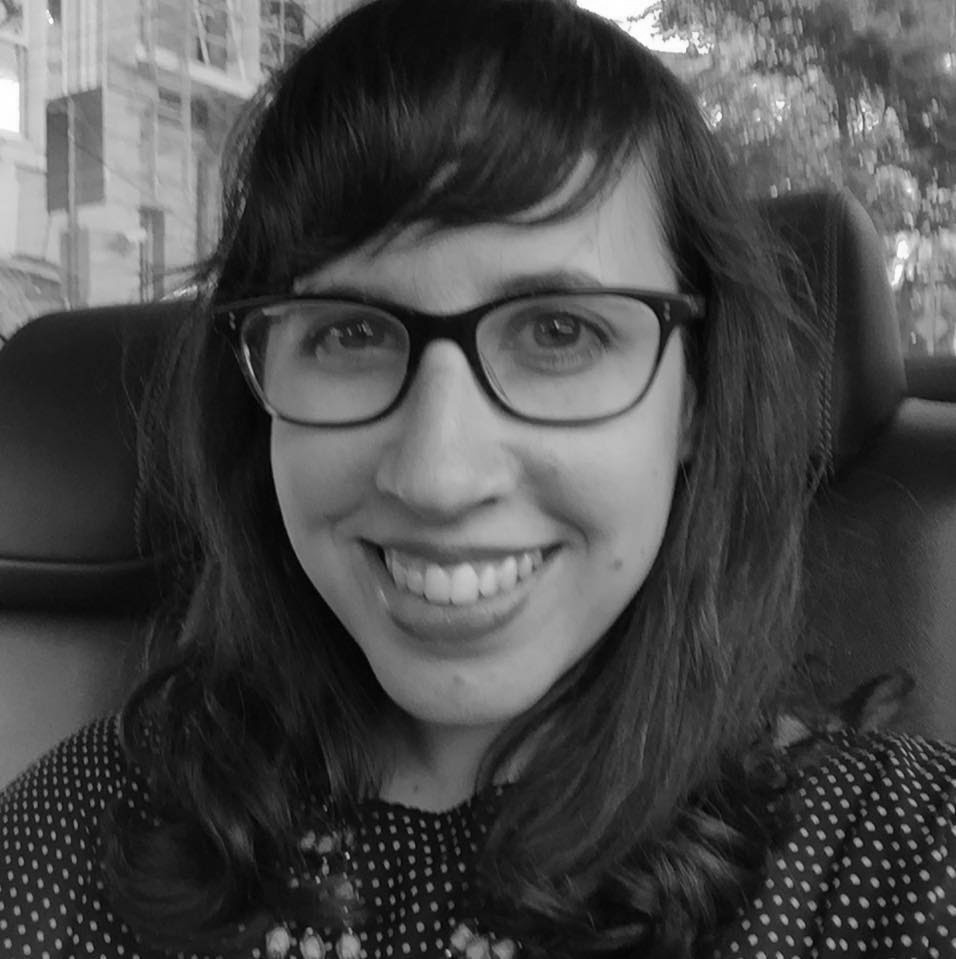 Ruth Kramer is Associate Professor of Linguistics at Georgetown University. Her research concerns syntax, morphology, and the relationship between them, including topics like gender, number, syncretisms, clitic doubling, and agreement. She conducts research almost entirely on languages from the Afroasiatic language family, with a special focus on Amharic (Ethiosemitic). She published a monograph The Morphosyntax of Gender in 2015 with Oxford University Press, and her publications have appeared in such journals as Natural Language and Linguistic Theory, Linguistic Inquiry, Syntax, Language and Linguistics Compass, and The Journal of Afroasiatic Languages. She received her Ph.D. in 2009 from the University of California, Santa Cruz, and she has been Associate Director of Afroasiatic Languages at Afranaph since 2012.
Ruth Kramer is Associate Professor of Linguistics at Georgetown University. Her research concerns syntax, morphology, and the relationship between them, including topics like gender, number, syncretisms, clitic doubling, and agreement. She conducts research almost entirely on languages from the Afroasiatic language family, with a special focus on Amharic (Ethiosemitic). She published a monograph The Morphosyntax of Gender in 2015 with Oxford University Press, and her publications have appeared in such journals as Natural Language and Linguistic Theory, Linguistic Inquiry, Syntax, Language and Linguistics Compass, and The Journal of Afroasiatic Languages. She received her Ph.D. in 2009 from the University of California, Santa Cruz, and she has been Associate Director of Afroasiatic Languages at Afranaph since 2012. For more information about Ruth Kramer, please see her website.
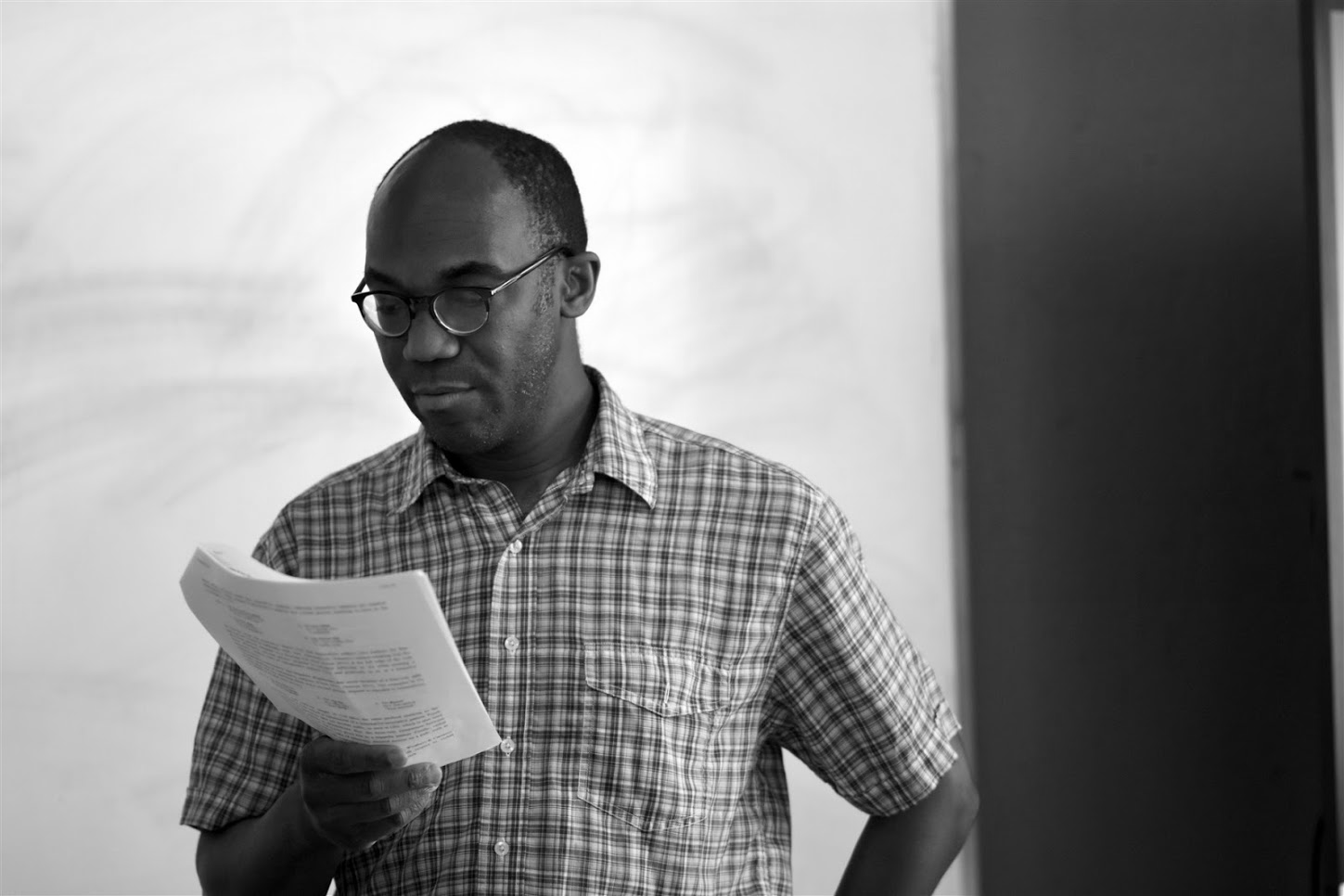
Harold Torrence is an Associate Professor of Linguistics at the University of California Los Angeles. His research has centered on wh-questions, relativization, focus, and complementation. He has conducted fieldwork in Senegal, Ghana, and Nigeria, in addition to ex-situ fieldwork in the USA. Torrence has worked on Atlantic languages such as Wolof and Bassari, Kwa langauges of the Ghana-Togo Mountain group and Central Tano, Lower Cross languages including Ibibio and Otomanguean and Mayan languages of Mesoamerica.
For more information about Harold Torrence, please go to his website.
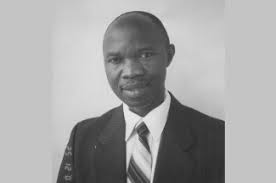 Ngessimo Mathe Mutaka is a full professor of linguistics at the University of Yaounde 1, Cameroon. He graduated at the University of Southern California Los Angeles, in 1990. His Ph.D. thesis entitled the Lexical tonology of Kinande (223p) has been published by Lincom Europa. He is the author of the Kinande-English Dictionary/ Dictionnaire Kinande-Français with late Kambale Kavutirwaki. The English version of this dictionary that comprises useful grammatical notes on Kinande is published on the Afranaph website. The French version will soon be available on the website of the Royal Museum for Central Africa (Tervuren, Belgium). His publications include An Introduction to African linguistics (317p), Research mate in African linguistics: focus on Cameroon. A fieldworker’s tool for deciphering the stories Cameroonian languages have to tell (360p), Building capacity: using TEFL and African languages as development-oriented literacy tools (193p), more than forty papers of linguistics published in recognized journals, and two books on AIDS prevention in both English and French.
Ngessimo Mathe Mutaka is a full professor of linguistics at the University of Yaounde 1, Cameroon. He graduated at the University of Southern California Los Angeles, in 1990. His Ph.D. thesis entitled the Lexical tonology of Kinande (223p) has been published by Lincom Europa. He is the author of the Kinande-English Dictionary/ Dictionnaire Kinande-Français with late Kambale Kavutirwaki. The English version of this dictionary that comprises useful grammatical notes on Kinande is published on the Afranaph website. The French version will soon be available on the website of the Royal Museum for Central Africa (Tervuren, Belgium). His publications include An Introduction to African linguistics (317p), Research mate in African linguistics: focus on Cameroon. A fieldworker’s tool for deciphering the stories Cameroonian languages have to tell (360p), Building capacity: using TEFL and African languages as development-oriented literacy tools (193p), more than forty papers of linguistics published in recognized journals, and two books on AIDS prevention in both English and French.
For more information about Ngessimo Mathe Mutaka, please go to his website.
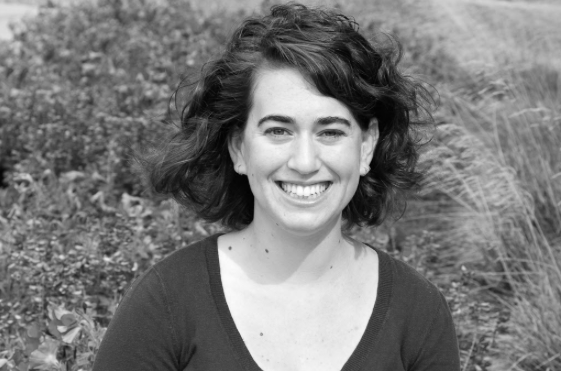 Claire Halpert is an Associate Professor of Linguistics at the University of Minnesota, Twin Cities, where she has worked since receiving her PhD from MIT in 2012. Her research has focused on topics including case, agreement, A-movement, counterfactuality, and clausal complementation. Professor Halpert has explored these topics primarily through the lens of her site-based research on the Bantu language Zulu; she has been working with Zulu speakers in KwaZulu-Natal, South Africa, since 2006. Since 2011, her work has focused on the variety of Zulu spoken by speakers in Durban, South Africa. She was a Visiting Scholar at the University of KwaZulu-Natal in 2011, 2012, and 2015 and was an instructor at the African Linguistics School in 2011 and 2013.
Claire Halpert is an Associate Professor of Linguistics at the University of Minnesota, Twin Cities, where she has worked since receiving her PhD from MIT in 2012. Her research has focused on topics including case, agreement, A-movement, counterfactuality, and clausal complementation. Professor Halpert has explored these topics primarily through the lens of her site-based research on the Bantu language Zulu; she has been working with Zulu speakers in KwaZulu-Natal, South Africa, since 2006. Since 2011, her work has focused on the variety of Zulu spoken by speakers in Durban, South Africa. She was a Visiting Scholar at the University of KwaZulu-Natal in 2011, 2012, and 2015 and was an instructor at the African Linguistics School in 2011 and 2013.For more information about Claire Halpert, please go to her website.
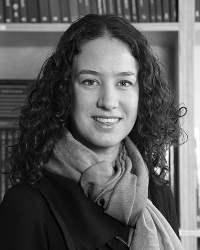 Jenneke van der Wal is a Senior Lecturer at the Leiden University Centre for Linguistics. After obtaining her PhD degree at the same institute in 2009, she worked on grammaticalisation at the Royal Museum for Central Africa (Belgium), investigated comparative syntax and parameter hierarchies at the University of Cambridge (UK), and taught at Harvard University (USA). Her research combines gathering new data from various Bantu languages with developing theories on the interface between syntax and information structure.
Jenneke van der Wal is a Senior Lecturer at the Leiden University Centre for Linguistics. After obtaining her PhD degree at the same institute in 2009, she worked on grammaticalisation at the Royal Museum for Central Africa (Belgium), investigated comparative syntax and parameter hierarchies at the University of Cambridge (UK), and taught at Harvard University (USA). Her research combines gathering new data from various Bantu languages with developing theories on the interface between syntax and information structure.For more information about Jenneke van der Wal, please go to her website.
Michael Die
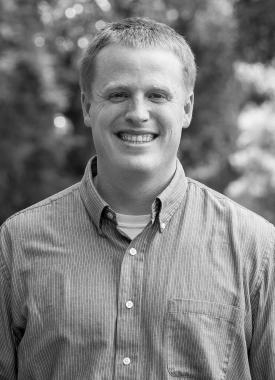 rcks is an Associate Professor of Linguistics and Cognitive Science at Pomona College. He received his Ph.D. from Georgetown University in 2010. His main research interests include syntactic and morphological theory and the syntax and morphosyntax of languages of East Africa, mainly on the Luyia subgroup of Bantu languages. He has worked on the empirical domains of inversionconstructions, object marking, complementizer agreement, and hyper-raising constructions, addressing theoretical questions about agreement, noun phrase licensing, and locality in syntax. His research has been published in venues like Natural Language and Linguistic Theory, Lingua, Linguistic Inquiry, and Studies in African Linguistics.
rcks is an Associate Professor of Linguistics and Cognitive Science at Pomona College. He received his Ph.D. from Georgetown University in 2010. His main research interests include syntactic and morphological theory and the syntax and morphosyntax of languages of East Africa, mainly on the Luyia subgroup of Bantu languages. He has worked on the empirical domains of inversionconstructions, object marking, complementizer agreement, and hyper-raising constructions, addressing theoretical questions about agreement, noun phrase licensing, and locality in syntax. His research has been published in venues like Natural Language and Linguistic Theory, Lingua, Linguistic Inquiry, and Studies in African Linguistics.For more information about Michael Diercks, please go to his website.
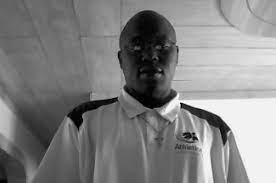 Justine Mukhwana Sikuku is a Lecturer in the department of linguistics and Foreign Languages at Moi University, Kenya. He received his Ph.D. from The University of Nairobi in 2011. Between August and November, 2011, he was a post-doctoral associate in the department of linguistics at Rutgers University. His research interests are in syntax and morphology, particularly in the nature of syntactic anaphora of African languages, as evidenced by his dissertation on the nature of anaphoric relations in Lubukusu. He is also the native speaker consultant on Lubukusu for the Afranaph project, and the Afranaph Sister Projects.
Justine Mukhwana Sikuku is a Lecturer in the department of linguistics and Foreign Languages at Moi University, Kenya. He received his Ph.D. from The University of Nairobi in 2011. Between August and November, 2011, he was a post-doctoral associate in the department of linguistics at Rutgers University. His research interests are in syntax and morphology, particularly in the nature of syntactic anaphora of African languages, as evidenced by his dissertation on the nature of anaphoric relations in Lubukusu. He is also the native speaker consultant on Lubukusu for the Afranaph project, and the Afranaph Sister Projects.
For more information about Justine Mukhwana Sikuku, please go to his website.
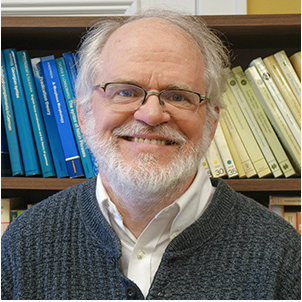 Mark Baker is Distinguished Professor of Linguistics and Cognitive Science at Rutgers University. He received his Ph.D. in Linguistics in 1985 from MIT. He taught at McGill University in Montreal for 12 years before moving to Rutgers in 1998. He specializes in the syntax and morphology of less-studied languages, particularly those of the Americas, Africa, and Asia. He seeks to bring together generative-style theories, data collected from fieldwork on diverse languages, and typological comparison in a way that illuminates all three–an approach sometimes called Formal Generative Typology. One of his mottos is “Languages are all the same — but not boringly so.” Another is “The more languages differ, the more they are the same.” He has written five research monographs, numerous journal articles, and one book for a popular audience (The Atoms of Language, 2001). He is also interested in studying the human mind, including the possibility of nonbiological, dualistic approaches.
Mark Baker is Distinguished Professor of Linguistics and Cognitive Science at Rutgers University. He received his Ph.D. in Linguistics in 1985 from MIT. He taught at McGill University in Montreal for 12 years before moving to Rutgers in 1998. He specializes in the syntax and morphology of less-studied languages, particularly those of the Americas, Africa, and Asia. He seeks to bring together generative-style theories, data collected from fieldwork on diverse languages, and typological comparison in a way that illuminates all three–an approach sometimes called Formal Generative Typology. One of his mottos is “Languages are all the same — but not boringly so.” Another is “The more languages differ, the more they are the same.” He has written five research monographs, numerous journal articles, and one book for a popular audience (The Atoms of Language, 2001). He is also interested in studying the human mind, including the possibility of nonbiological, dualistic approaches.
For more information about Mark Baker, please visit his website.
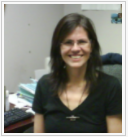 Patricia Schneider-Zioga is an Associate Professor of Linguistics at CSUF. She received her Ph.D. in Linguistics from the University of Southern California. Her dissertation examined the syntax of clitic-doubling in Modern Greek. She continues to be fascinated by the syntax of agreeing constructions such as pronominal clitics and subject/verb agreement. Her Erdös number is 5. This number measures how distant she is in co-authorship from the prolific and collaborative mathematician Paul Erdös. The fact that linguists can have an Erdös number demonstrates that at least some linguists have cooperated with mathematicians in order to solve problems in the field of linguistics (or vice versa).
Patricia Schneider-Zioga is an Associate Professor of Linguistics at CSUF. She received her Ph.D. in Linguistics from the University of Southern California. Her dissertation examined the syntax of clitic-doubling in Modern Greek. She continues to be fascinated by the syntax of agreeing constructions such as pronominal clitics and subject/verb agreement. Her Erdös number is 5. This number measures how distant she is in co-authorship from the prolific and collaborative mathematician Paul Erdös. The fact that linguists can have an Erdös number demonstrates that at least some linguists have cooperated with mathematicians in order to solve problems in the field of linguistics (or vice versa).
For more information about Patricia Schneider-Zioga, please visit her website.
